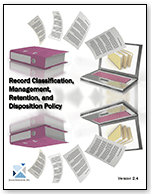Data deduplication an avenue towards cost savings
 It is estimated by some that corporate data has grown by 25% in 2009 after several years of increases at two to three times that rate. When you combine this with flat to decreasing IT budgets, something eventually has to give. Companies are now forced to make a choice.
It is estimated by some that corporate data has grown by 25% in 2009 after several years of increases at two to three times that rate. When you combine this with flat to decreasing IT budgets, something eventually has to give. Companies are now forced to make a choice.
They will have to either keep buying more storage - which means other budgeted items go unfunded -and deal with the increased operating costs associated with managing more devices, such as power, cooling, and data center space or reduce the amount of data retained, which could impact compliance, recovery service level agreements, and business intelligence initiatives.
Data deduplication approaches offer IT a hybrid alternative, which is to remove redundant content before it is ultimately stored - eliminating most of the downstream negative effects, which capacity would cause. The gains in capacity savings provide customers with much more optimistic outcomes such as the ability to retain more "virtual" and true information online for longer periods, dramatically lowering the operating impact of supporting that data and enhancing data protection operations with disk.
These outcomes can lead to huge downstream financial benefits, such as moving corporate archives from tape to disk to assist corporate counsels in responding to electronic discovery requests. For example, in a 2008 survey, approximately 60% of U.S.-based trial attorneys reported having cases that raise electronic discovery issues. Of that group, over 86% have issued or received a discovery request for electronically stored information since the new Federal Rules of Civil Procedure went into effect in December 2006. Corporate counsels need to quickly be able to run searches against centralized online archives in order to facilitate early case preparation and potentially avoid legal expenses because of reaching a settlement prior to trial.
Read on Record Management Policy Order Records Management Policy Download Sample Policy


